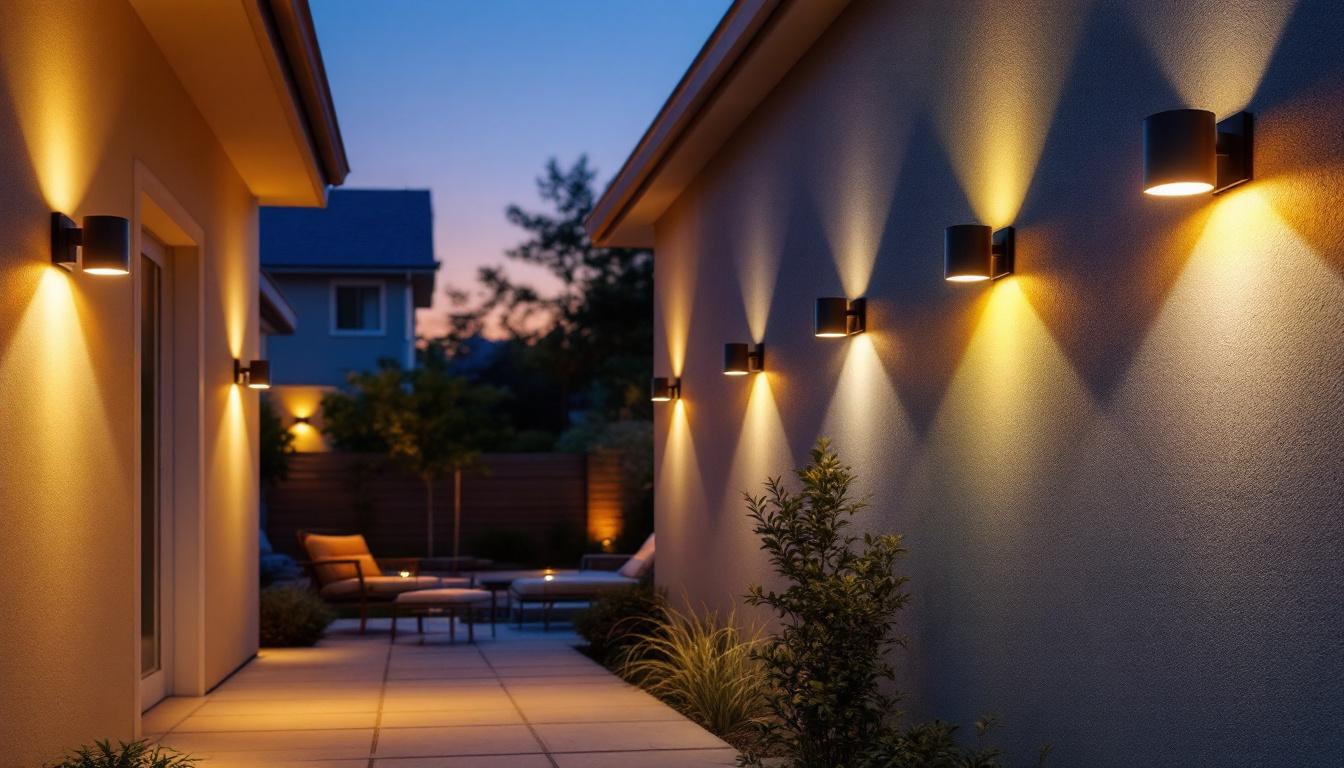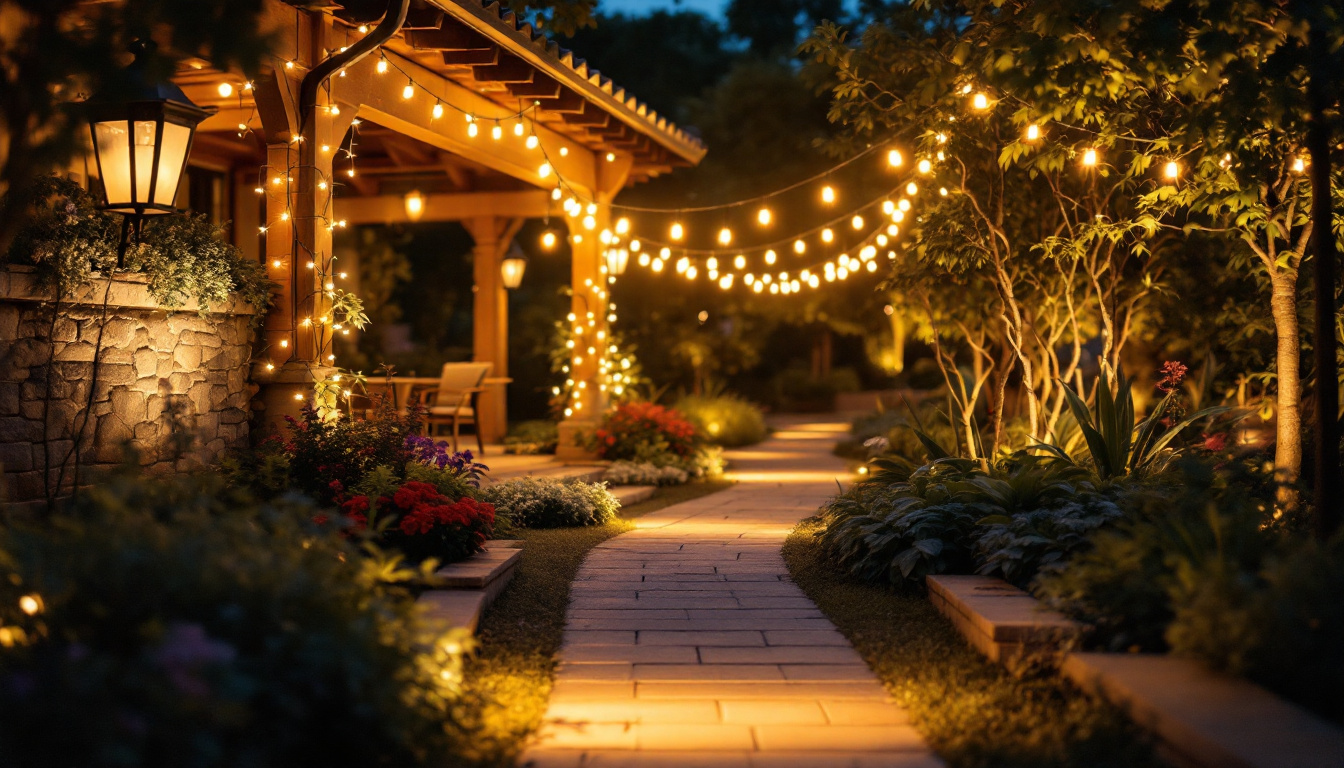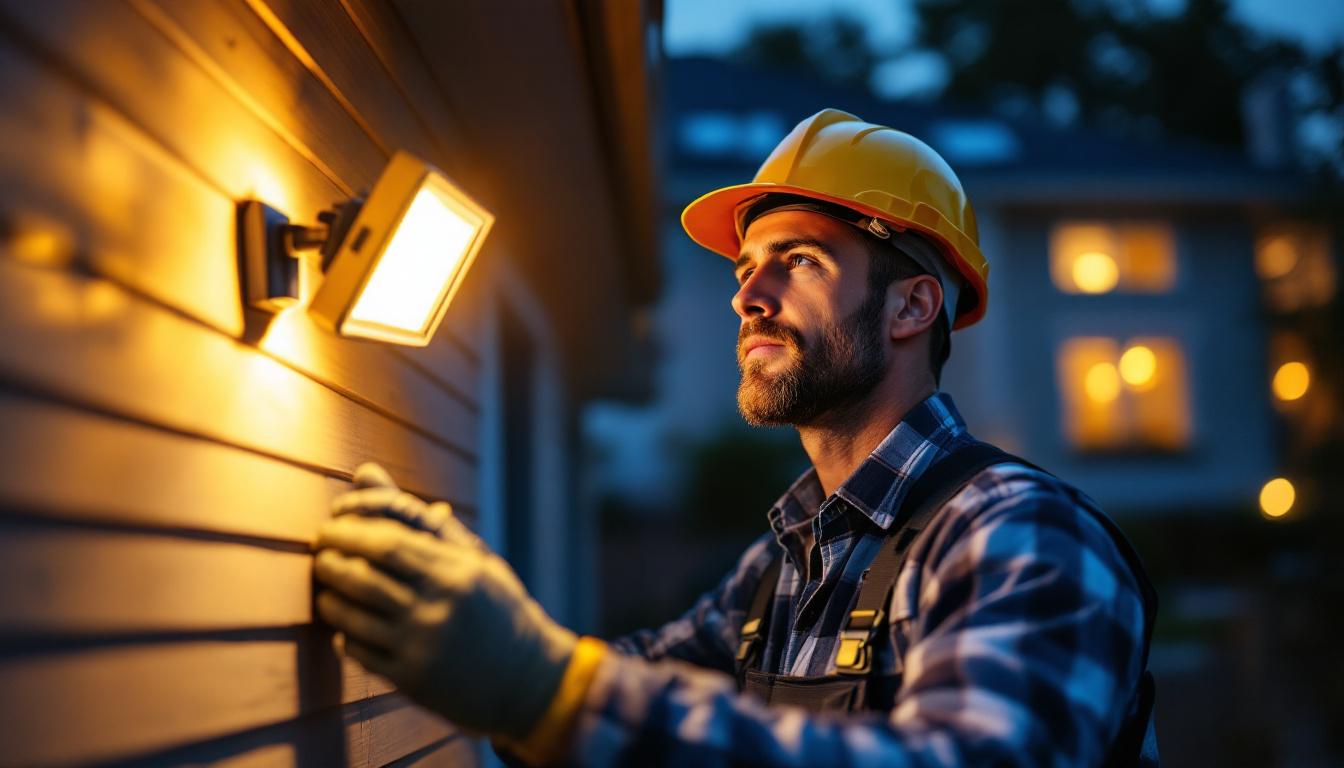
As outdoor spaces continue to gain importance in residential and commercial design, the demand for effective outdoor wall lighting has surged. For lighting contractors, understanding the nuances of outdoor wall lights is essential for delivering quality installations that meet client expectations. This article outlines key tips for selecting and installing outdoor wall lights, ensuring that contractors can provide optimal solutions for their customers.
Outdoor wall lights serve multiple purposes, from enhancing security to creating ambiance. They come in various styles, sizes, and functionalities, making it crucial for lighting contractors to understand the options available in the market. Familiarity with the different types of outdoor wall lights can help contractors make informed decisions that align with their clients’ needs. Additionally, the choice of outdoor wall lights can significantly impact the aesthetic appeal of a property, contributing to its overall curb appeal and value. As homeowners increasingly prioritize outdoor living spaces, the demand for stylish and functional lighting solutions continues to grow.
Outdoor wall lights can be categorized into several types, each designed for specific applications. Common types include sconces, floodlights, and lanterns. Sconces are often used for decorative purposes, while floodlights provide broad illumination for security and safety. Lanterns, on the other hand, can add a vintage charm while also serving functional lighting needs. Beyond these traditional styles, modern designs such as LED wall lights and smart lighting options are gaining popularity. These advancements not only offer energy efficiency but also allow for customizable lighting settings that can adapt to different occasions and moods.
Moreover, understanding the differences between hardwired and solar-powered options can further enhance the selection process. Hardwired lights are typically more reliable and powerful, while solar lights offer ease of installation and energy efficiency. Evaluating the pros and cons of each type will allow contractors to recommend the best options for their clients. For instance, solar lights can be particularly advantageous in remote areas where electrical access is limited, while hardwired options may be preferable for high-traffic areas requiring consistent and robust lighting. Additionally, contractors should consider the local climate, as some solar lights may perform better in regions with ample sunlight.
Proper installation is critical for the performance and longevity of outdoor wall lights. Contractors should consider factors such as height, location, and spacing when planning installations. For instance, lights should be mounted at a height that maximizes visibility without causing glare. Additionally, spacing between lights should ensure adequate coverage without creating dark spots. It is also essential to take into account the architectural features of the building and surrounding landscape, as these elements can influence the effectiveness of the lighting design.
Another important consideration is the orientation of the lights. Depending on the design of the outdoor space, lights may need to be angled to avoid obstructions and to direct light where it is most needed. Taking these factors into account will lead to a more effective lighting design. Furthermore, the use of dimmers and motion sensors can enhance functionality, allowing homeowners to adjust brightness levels according to their needs or activate lights only when movement is detected. This not only improves energy efficiency but also adds an extra layer of security, making outdoor spaces safer and more inviting for both residents and guests.
Style is a significant aspect of outdoor wall lighting that can influence a project’s overall aesthetic. Lighting contractors must consider the architectural style of the building and the surrounding landscape when selecting fixtures. A cohesive design will enhance the beauty of the property and create a welcoming atmosphere. The right outdoor lighting can transform a mundane space into a captivating environment, highlighting key features such as pathways, gardens, and architectural details. This not only improves safety and visibility but also elevates the overall ambiance, making outdoor areas more inviting for gatherings and relaxation.
Different architectural styles call for different lighting solutions. For example, modern homes may benefit from sleek, minimalist fixtures, while traditional homes might look best with ornate lanterns or sconces. Understanding the architectural context can help contractors recommend fixtures that complement the design rather than clash with it. Additionally, contractors should consider the scale of the fixtures in relation to the building; oversized lights can overwhelm a small façade, while tiny fixtures may get lost on a grand structure. This attention to detail ensures that every element works harmoniously together, creating a balanced and aesthetically pleasing look.
Contractors should also be aware of the color palette of the outdoor space. Fixtures in neutral tones can blend seamlessly with various designs, while bold colors can serve as statement pieces. Balancing these elements will ensure that the lighting enhances the overall appeal of the property. Beyond color, the material of the fixtures is also crucial; for instance, weather-resistant materials like stainless steel or treated wood can withstand the elements while maintaining their visual integrity. By selecting materials that resonate with the surrounding environment, contractors can further enrich the outdoor experience.
As technology continues to evolve, smart outdoor lighting solutions are becoming increasingly popular. These systems allow for remote control and automation, providing convenience and energy efficiency. Lighting contractors should familiarize themselves with available smart lighting options, including those that integrate with home automation systems. Features such as motion sensors, timers, and dimming capabilities not only enhance functionality but also contribute to energy savings, making them an attractive option for environmentally conscious clients.
When recommending smart outdoor wall lights, it’s essential to consider compatibility with existing systems and the specific needs of the client. Offering smart solutions can set contractors apart from competitors and provide added value to clients. Furthermore, educating clients about the benefits of smart lighting—such as enhanced security through programmable settings or the ability to create different moods with adjustable brightness—can lead to more informed decisions. As homeowners increasingly seek convenience and efficiency, integrating smart technology into outdoor lighting design can significantly elevate the overall project and client satisfaction.
With growing awareness of environmental issues, energy efficiency has become a priority for many homeowners and businesses. Lighting contractors should emphasize the importance of selecting energy-efficient outdoor wall lights to their clients. Not only do these options reduce energy consumption, but they can also lower utility bills over time.
LED lights have emerged as a popular choice for outdoor wall lighting due to their longevity and efficiency. Compared to traditional incandescent or halogen bulbs, LED lights consume significantly less energy and have a much longer lifespan. This shift not only benefits the environment but also appeals to cost-conscious clients.
Contractors should be prepared to discuss the advantages of LED technology, including brightness, color temperature options, and dimming capabilities. Educating clients about these benefits can facilitate informed decision-making and encourage the adoption of energy-efficient solutions.
Solar-powered outdoor wall lights offer a sustainable alternative for clients looking to minimize their carbon footprint. These lights harness solar energy during the day and provide illumination at night without relying on the electrical grid. While they may not be suitable for every application, they can be an excellent option for low-light areas or spaces where wiring is impractical.
When recommending solar lights, contractors should consider factors such as sunlight availability, battery capacity, and the specific lighting needs of the area. By providing tailored solutions, contractors can help clients achieve their sustainability goals.
Lighting contractors must be aware of local regulations and codes that govern outdoor lighting installations. Compliance is essential not only for legal reasons but also for ensuring the safety and satisfaction of clients. Understanding these regulations can help contractors avoid potential issues during installation.
Many municipalities have specific zoning laws that dictate how outdoor lighting can be used. These laws may include restrictions on brightness levels, fixture placement, and even the types of bulbs that can be used. Contractors should research local regulations to ensure that their lighting designs comply with these standards.
Additionally, contractors should be prepared to communicate these regulations to clients. Providing clear information about compliance can build trust and demonstrate professionalism, ultimately leading to better client relationships.
Safety is paramount in outdoor lighting installations. Contractors should adhere to safety standards set by organizations such as the National Electrical Code (NEC) to ensure that installations are safe and reliable. This includes proper wiring techniques, weatherproofing fixtures, and ensuring that all components are rated for outdoor use.
By prioritizing safety, contractors can protect their clients and themselves from potential hazards. This commitment to safety can also enhance the contractor’s reputation and lead to more referrals and repeat business.
Proper maintenance is essential for ensuring the longevity of outdoor wall lights. Lighting contractors should educate clients on the importance of regular upkeep to maximize the lifespan and performance of their fixtures. This can include cleaning, checking for damage, and replacing bulbs as needed.
Outdoor fixtures are exposed to the elements, making them susceptible to dirt, dust, and corrosion. Regular cleaning can help maintain their appearance and functionality. Contractors should recommend a cleaning schedule that includes wiping down fixtures and checking for any signs of wear or damage.
Additionally, periodic inspections can help identify potential issues before they become significant problems. Encouraging clients to be proactive about maintenance can save them time and money in the long run.
As technology advances, older lighting fixtures may become outdated or less efficient. Contractors should keep clients informed about new products and technologies that could enhance their outdoor lighting systems. Offering upgrade options can provide clients with improved performance and energy savings.
By fostering a relationship that encourages ongoing communication, contractors can position themselves as trusted advisors in outdoor lighting, ultimately leading to long-term client satisfaction.
Outdoor wall lighting is a vital component of any outdoor space, providing both functionality and aesthetic appeal. For lighting contractors, understanding the various types of fixtures, installation considerations, and design elements is crucial for delivering successful projects. By focusing on energy efficiency, compliance with regulations, and maintenance, contractors can ensure that their installations meet client needs and stand the test of time.
As the demand for outdoor lighting continues to grow, staying informed about industry trends and best practices will position contractors for success. By implementing the tips outlined in this article, lighting contractors can enhance their service offerings and build lasting relationships with their clients.
Ready to elevate your lighting projects with the finest selection of outdoor wall lights? At LumenWholesale, we provide lighting contractors with spec-grade lighting solutions that combine quality, affordability, and convenience. Say goodbye to local distributor markups and hello to our extensive range of high-performance lighting at wholesale prices. Plus, with free shipping on bulk orders, you can trust that you’re getting the best value without any hidden costs. Don’t compromise on your lighting needs—choose LumenWholesale for superior products that will make your outdoor spaces shine. Wholesale Lighting at the Best Value is just a click away.

Illuminate your projects with expertise using our comprehensive guide on outdoor up and down lighting.

Discover how outdoor flood light motion technology can transform your lighting contracting business.

Discover how Spotlight Track Lighting boosts efficiency for lighting contractors, enhances project flexibility, and saves up to 30% on installation time.

Discover why LED garage light fixtures are becoming a pivotal element in the lighting industry.